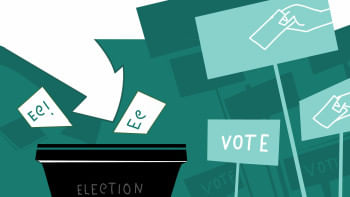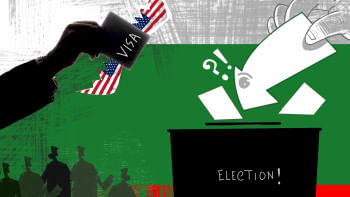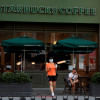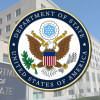Column by Mahfuz Anam: Need for a change in our political culture

We are greatly relieved that no violence occurred in Wednesday's showdown between our two biggest political parties. What did the showdown prove? That both parties could gather thousands for rallies, that both had mass support, etc. Didn't we know all that? BNP announced their plan to hold a rally. Immediately, Awami League had to hold a counter-rally on the same day, and also close to their rival's venue? Why? It reminded me of two competing school boys gesticulating in various ways, trying to prove that their muscles were bigger than each other's.
Was public convenience thought of in calling for these rallies? Given Dhaka's paucity of roads and dependency on a few arterial avenues for traffic flow – which on a normal day is extremely challenging, to put it mildly – calling for such rallies on a weekday in the heart of the city is actually calling for shutting down the city centre for a whole day. Did it at all matter to them?
An interesting answer emerged when asked why the two parties didn't hold these rallies on the weekend, which would have greatly reduced public suffering. BNP leaders said they wanted to show the EU and US visitors how much public support they could garner, thus strengthening their case to the foreigners. So, is AL's accusation true that BNP's politics is to attract external attention and goad them to get involved? But why did the AL call for a counter-rally on the same day? Was it also to show our visitors their strength? Are we to conclude, then, that both rallies were for the benefit of the visitors and not for our people? Would it be out of place to speculate that if the US would suddenly say, "Election is an internal matter of a country," AL would suddenly stop all their ramblings about foreign interference? So we can further speculate that all of this is a matter of party interest, not national interest.
This is but a flicker of a glimpse of the hypocrisy of our politics. It is all about power. For the party already on the buttered side of the bread, politics is about how to remain there and destroy every legitimate attempt to counter it. As for their rival, politics is only about getting to the other side. It is seldom, if ever, about public interest.
So what did we get from the much-hyped rally and the counter-rally? BNP said, "No election under Hasina" (something that we knew), to which AL countered, "No election but under Hasina" (that also we knew). This reminded me of a cartoon in Time or Newsweek magazine in the early 1970s, when Kissinger launched his efforts to bring North and South Vietnam to the negotiating table. The cartoon showed the North saying, "We shall never talk to the South," and the other side saying, "We shall never talk to the North," and Kissinger saying, "I see that both sides agree on one point." We also have a similar agreement – no talks with the other side. So where do we go from here?
If we are concluding on the basis of the last 32 years (since the fall of Ershad) of negotiated settlements of our political disputes, the sad and anxiety-triggering answer is: "nowhere." For AL-BNP's record of reconciling their divergent points of view through negotiation is indeed very scanty. There is only one bright instance that occurred in the early days of post-Ershad era, when BNP accepted AL's proposal of moving away from the presidential – preferred by its founder, Gen Ziaur Rahman – to the parliamentary form of government when Khaleda Zia was the prime minister and BNP had the majority in parliament. It was a very encouraging example of a mature negotiation between political rivals in which the treasury bench in the House accepted the proposal of the opposition.
In our view, the reason we can't negotiate is because we are stuck with fossilised views of some key concepts of political negotiations. For us, to discuss is to show weakness (what is there to discuss? We know who they are and what they represent), to negotiate is to surrender (how can we negotiate? Our position is the perfect one), to accommodate is to give space to those whom we must try to destroy, to acknowledge some good aspects of the opposition is to sow the seeds of self-doubt, etc.
During the last 32 years, except for the two years of army-backed government in 2007-08, we have been ruled either by the AL (nearly 20 years) or the BNP (10 years). Over time, from being political rivals, they became enemies, and mutual destruction became the name of the game. The attempt on Sheikh Hasina's life in August 2004 when Khaleda Zia was in power totally transformed the AL-BNP relations. Prospect of peaceful transfer of power vanished, and remaining in power became the be-all and end-all of politics.
Since in democracy one can never be certain to retain power, multifaceted attempts to corrode it were set afoot. Restrictive laws became a convenient weapon that gave oppression a veneer of legal cover. Manipulating elections was an obvious choice, to pull off which one had to empower the police, the bureaucracy, the intelligence agencies, etc – everybody but the people. So now we are in a state where police and the agencies can do anything, and bureaucracy is so powerful that nothing can be done without them.
It is in these circumstances that we are heading for the next general election, and the two main political parties have one agreement – not to talk to the other.
Marcus Aurelius, one of the wisest of Roman emperors (161-180 AD), pleaded with the senate to give autonomy to the captured German prisoners, while the latter wanted to turn them into slaves, said, "Honourable Fathers of Rome, we have changed the world, can't we change ourselves?" BNP to some extent and AL to a far greater extent have changed Bangladesh. Can't we expect them to change themselves, even a bit?
Mahfuz Anam is the editor and publisher of The Daily Star.

 For all latest news, follow The Daily Star's Google News channel.
For all latest news, follow The Daily Star's Google News channel. 










Comments